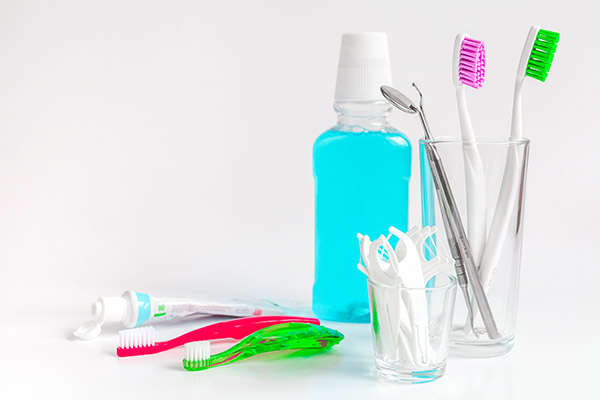 Keeping up with oral hygiene basics can prevent cavities and other issues with your teeth. Proper daily care can also stop discoloration of the teeth and reduce bad breath. Here are some dental habits that people can benefit from including as part of a daily routine.
Keeping up with oral hygiene basics can prevent cavities and other issues with your teeth. Proper daily care can also stop discoloration of the teeth and reduce bad breath. Here are some dental habits that people can benefit from including as part of a daily routine.
Brushing properly
One of the most important parts of oral hygiene is brushing your teeth regularly. You should brush twice a day for approximately two minutes each time. It is important to use a toothbrush in good condition and replace it when the bristles start to fray or warp. Your toothpaste should include fluoride as a key ingredient.
The proper brushing technique involves making a lot of small circular movements with the toothbrush and taking the time to cover the entire mouth. It is important to clean around the gums, but you should avoid pressing too hard, as that can cause bleeding and other damage. The tongue should also be regularly brushed, as it is a common area for bacteria to linger.
Flossing regularly
In addition to brushing twice a day, flossing at least once a day is one of the oral hygiene basics for maintaining healthy teeth. There are many options for flossing, including premade flossing sticks, water flossers, and more choices that can make flossing easier. When flossing, it is important not to press too hard on the gums, drawing blood. Instead, one should focus on moving the floss between every tooth to clean the spaces and prevent bacteria growth. Making flossing a daily habit is equally important to brushing for preventing dental health issues.
Attending checkups consistently
Regular checkups are another important aspect of oral hygiene basics. Routine cleaning and examinations from a dentist help catch any problems with dental health early on. It can be a good idea for adults to see a dentist once or twice a year as part of the oral care routine. In addition to visiting a dental provider for regular cleanings, it can also be a good idea for anyone noticing pain or changes in their teeth or gums to consult a dentist.
Using mouthwash frequently
While not as important as regular brushing and flossing, oral hygiene basics can also include the use of mouthwash. Generally, choosing a mouthwash should involve looking for one that includes fluoride, which can help prevent cavities. Even after brushing and flossing, you may find some small pieces of food left behind. Mouthwash rinses away anything that remains and can be a great final step of a daily dental care routine.
Conclusion
Oral hygiene basics should include daily practices such as brushing, flossing, and rinsing with mouthwash to maintain good dental health. Consistent checkups are another important part of basic care that should not be forgotten. By keeping up these practices, it is much more likely that cavities and more serious issues with the teeth and gums can be avoided.
Request an appointment or call Allstar Dental at 714-462-4437 for an appointment in our Garden Grove office.
Related Posts
Healthy teeth are a vital part of being able to eat and enjoy food, but certain foods can be more harmful to dental health than others. Learning about foods that help and hurt the teeth is an important part of oral hygiene basics that can be helpful in guiding the choices people make when caring…
Tooth decay happens when the enamel, or tooth surface, is damaged. You can use oral hygiene basics to prevent it. However, tooth decay is still one of the most common health problems in the world. The CDC reports that in the United States alone, more than 90% of adults have had cavities.Everyone has bacteria in…
Although many people believe that plaque and tartar are the same, they actually have significant differences. Understanding the distinctions between these two dental conditions can help you identify their warning signs and practice oral hygiene basics to avoid them.Plaque is a soft film containing millions of bacteria that build up on your teeth, gums, and…
